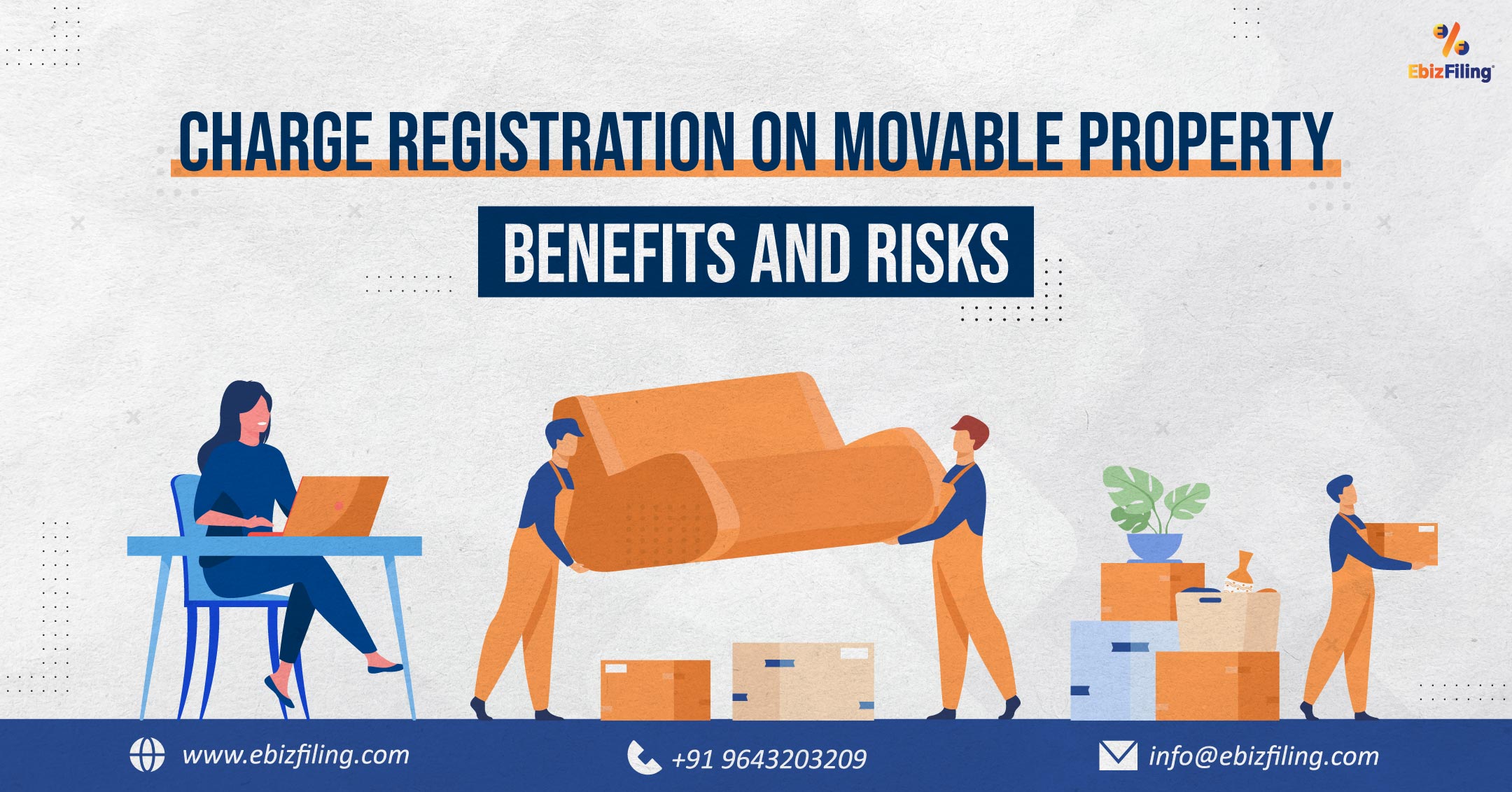
-
January 2, 2024
Benefits and Risks of Charge Registration on Movable Property?
Introduction
Charge registration of movable property (also called security interest registration) is a legal proceeding in which a lender files a security claim against the borrower’s movable property (inventory, equipment, or vehicles) to obtain a loan. In the context of business loans, when the borrower promises certain assets as collateral to receive funding, this sort of security is frequently used. Charge registration has numerous benefits, but certain concerns need to be carefully considered as well.
What is Charge registration on Movable Property?
Charge registration on the property is a legal process in which a lender registers a security interest over the borrower’s movable assets to secure a loan. In other words, it is a form of collateral where the borrower promises certain movable assets, such as inventories, equipment, automobiles, or other tangible personal property, as security for a loan.
What are the Benefits of Charge Registration on Movable Property?
Following are a few benefits of charge registration of movable property:
-
Better Access to Financing: Registration of charges against movable assets might open financing options for borrowers that they might not have had access to previously. This is because when a loan has security backing it, lenders are more likely to offer money. Borrowers’ chances of being authorized for funding might be increased by using movable items as collateral.
-
Flexible security: Compared to real estate or other fixed assets, movable goods are typically simpler to offer as security. This is because mobile assets are more flexible in terms of security. After all, they are easy to move and sell. Movable property can be an ideal replacement for borrowers who lack real estate or other fixed assets to use as collateral.
-
Lower Interest Rates: Movable property charge registration might also result in loans with cheaper interest rates. This is because the security offered lowers the risk to the lender, lowering the cost of borrowing money. Lower interest rates allow borrowers to reduce their borrowing costs, which could speed up the process by which they reach their financial objectives.
-
Improved Security: Charge registration on movable goods can give lenders a higher level of security. This is because if the borrower defaults on the loan, the security deposit can be quickly seized and sold. This lowers their risk and increases their willingness to lend because lenders are more likely to get their money back in the event of a failure.
What are the Risks of Charge Registration on Movable Property?
Charge registration on the movable property can pose several risks, some of which are:
-
Limited Protection: Compared to real estate or other fixed assets, movable assets are less secure as collateral because they are easily relocated or sold. This implies that borrowers could be able to move or sell the collateral without the lender’s knowledge, which lowers the lender’s security.
-
Legal Complexity: Charge registration on movable property can be a complicated legal process that may call for the help of lawyers or other legal experts. This may make the loan more expensive and complicated, making it more challenging for borrowers to find financing.
-
Valuation Challenges: It can be challenging to value movable property, which can result in disputes between lenders and borrowers over the worth of the collateral. The result could be costly and time-consuming delays in loan dispute resolution.
-
Fraudulent activities: To avoid paying their debts, some people may intentionally transfer or get rid of their movable assets. This may lead to fraudulent behavior that could hurt the creditors.
Conclusion
Therefore, while charge registration on movable property can be an attractive option for borrowers and lenders, it is important to consider the potential benefits and the risks involved carefully before making any decisions. It is also crucial to ensure that the legal framework governing charge registration on movable property is well understood and complied with to avoid any complications or uncertainties that may arise.
Charge Registration on Property
Availed loan from a bank against property? Registration of charge is mandatory if you are a private limited or limited company.
About Ebizfiling -










Reviews
Devangi Patnayak
11 Mar 2018I am very happy with the way they serve their clients. They are focused on providing the best help that they can and are result oriented.
NarendraSuresh Gaikwad
13 Nov 2018I was satisfy on your service&your company emplyee's guidence.Durva patel was guide us & given good sujetion about SSI certification.it will not happen in each and every organization thanks again for your service. Thanks &Regards, Narendra Gaikwad M.D.Swami Samarth Udyog Samuh
Shailesh Charel
08 Aug 2018So far it's been an amazing experience, I haven't got in touch with anyone after I started using services from EBizfilling. Suhani & Pratima is great at Client Servicing. They were always there for on-demand help. Keep Growing
February 27, 2025 By Team Ebizfiling
Legal Implications of Articles of Association (AOA) under company Law In Company Law, the AOA (Articles of Association) outlines a company’s internal rules, regulations, and governance structure. It defines how the company manages its operations, specifying the rights and responsibilities […]
February 24, 2025 By Team Ebizfiling
RBI Rules for Foreign Subsidiary Companies in India The Reserve Bank of India (RBI) has certain rules for foreign companies operating in India or Indian companies with foreign investors. These rules ensure smooth business operations while following Foreign Exchange Management […]
February 14, 2025 By Team Ebizfiling
LLC vs INC : Difference between LLC and INC Introduction Choosing the right business structure is important when starting a company. Two common options are LLC (Limited Liability Company) and Inc. (Corporation). Both protect owners from personal liability, but they […]